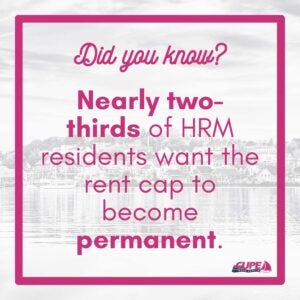When discussions of rent control enter the mainstream media, the conversation almost always shifts to the negative impact these controls would have on the housing market or the quality of rental properties.
This is untrue.
Strong rent regulations, as demonstrated by the 2024 article from the CCPA, Arguments Against Rent Control Don’t Hold up to Scrutiny, have been proven to be an effective way to control rent prices without negatively impacting the housing market or the quality of rentals.

Multiple National and Provincial level studies have been done on the effects of rent caps on the rental market—such as the number of new constructions, the quality of rental properties, and the number of available dwellings—and found there was no evidence of any negative effects unless the rent control action taken was a total rental price freeze.
Rent control can take many forms depending on the issues the area is facing and the goals in mind, but, in general, it consists of increased rental regulation that set a maximum amount that rent can be raised as a percentage such as Nova Scotia’s 5% rent cap and vacancy regulation, which keeps the rent for a unit consistent between tenants—something that Nova Scotia does not have.
This loophole means that landlords can, and do, force tenants to move out through renovictions or refusing to renew their fixed-term lease so that they can increase the rent however they want. This loophole has resulted in a 17.1% average rental cost increase in the last year alone.
Increased housing costs, both for the purchase of a new home and renting, have made it impossible for many Nova Scotians to find stable housing. The Houston government can do something about this by implementing vacancy regulation, making the rent cap permanent, and banning renovictions—they are choosing not to.

